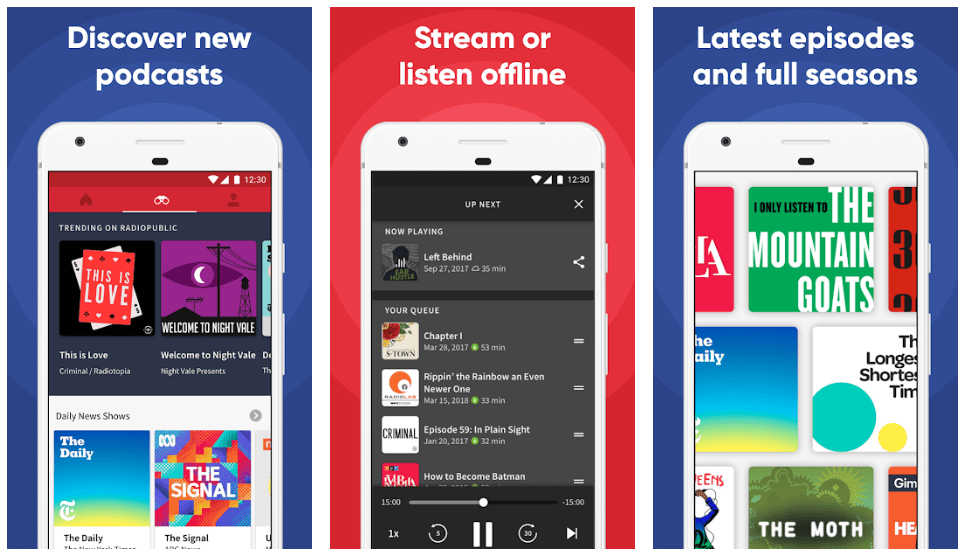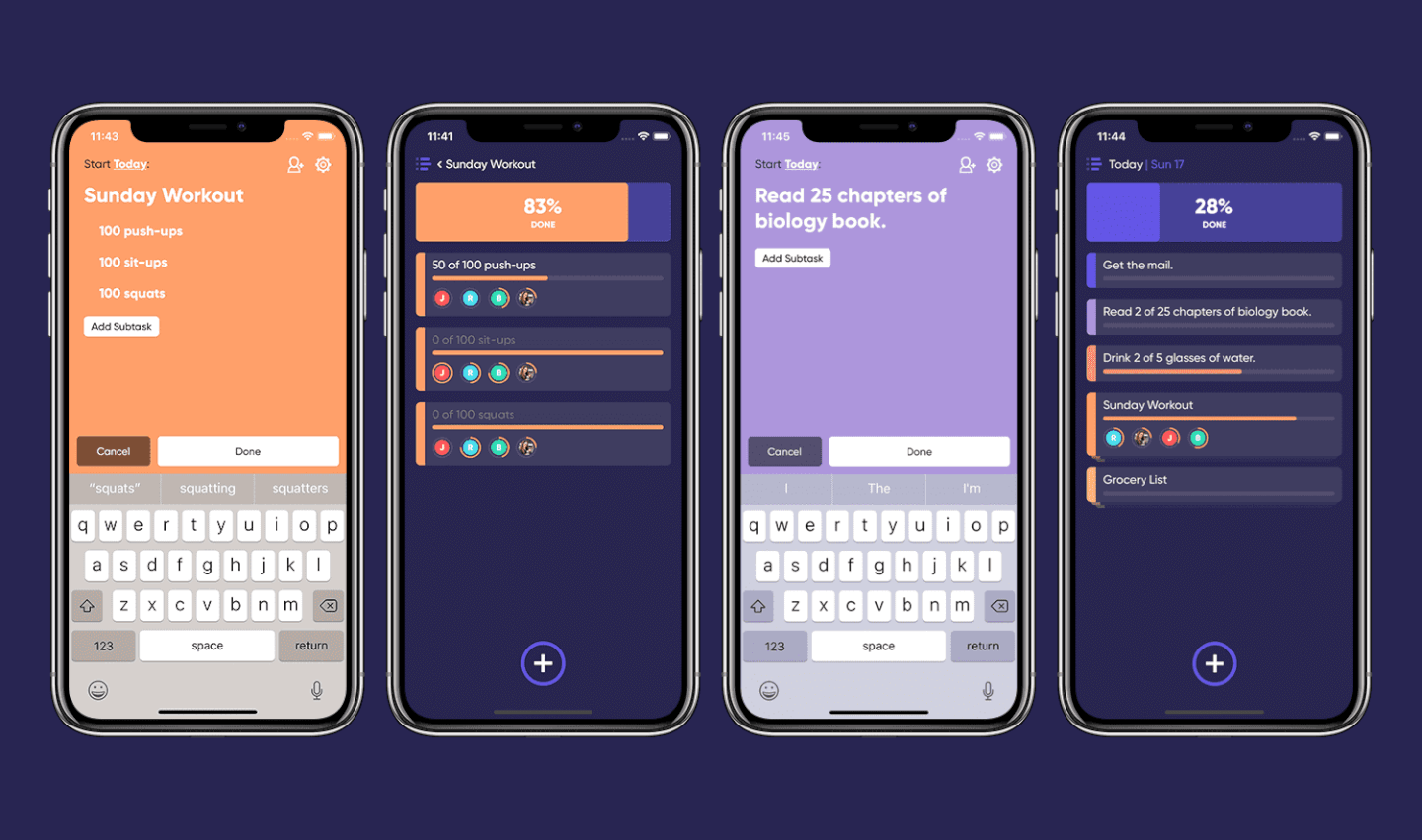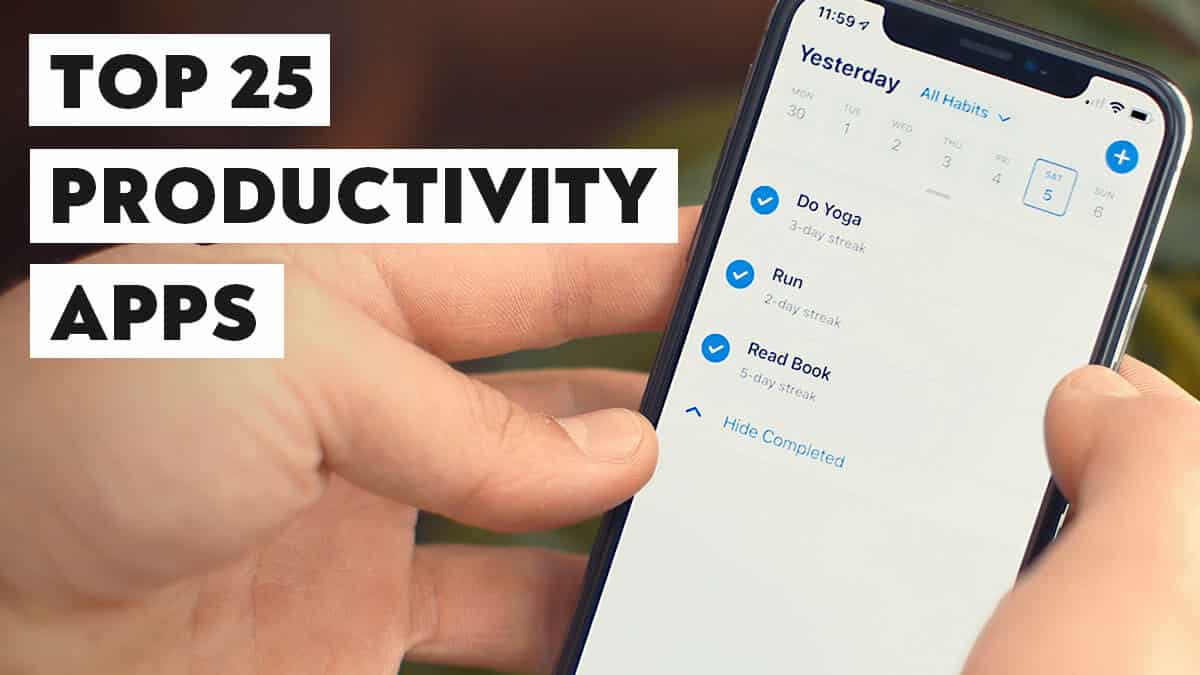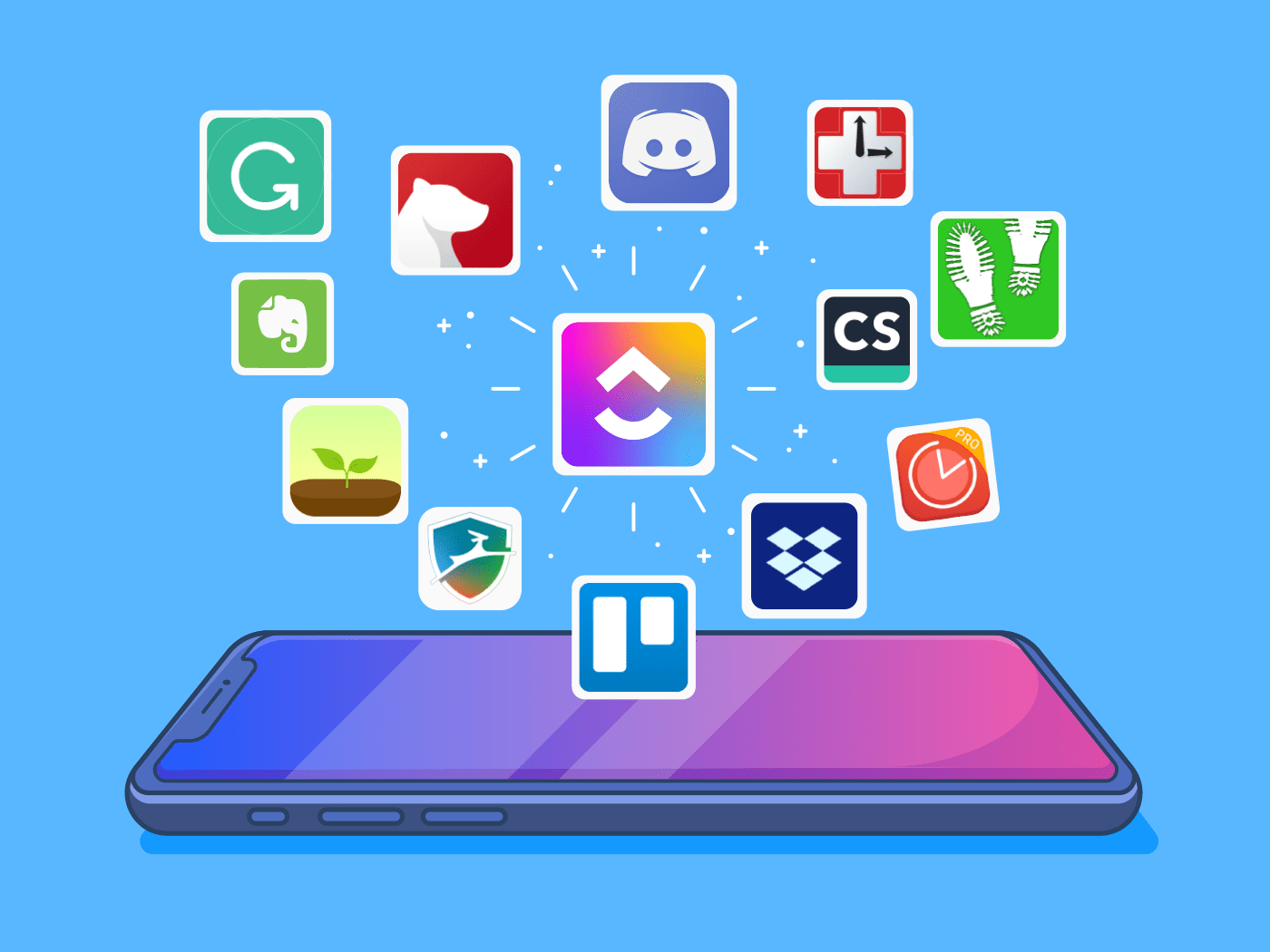Best productivity apps for Android empowers users to streamline their workflow, boosting efficiency and achieving their goals. With a myriad of options available, navigating the productivity landscape can be overwhelming. This guide unravels the essential features, popular apps, and emerging trends to help you choose the perfect app for your needs.
Overview of Productivity Apps for Android

Productivity apps are a vital tool for Android users, offering a range of benefits that help users stay organized, efficient, and productive. These apps streamline tasks, improve time management, and enhance communication, making them indispensable for professionals, students, and anyone seeking to optimize their workflow.
The popularity of productivity apps among Android users is soaring due to their versatility and adaptability. They cater to diverse needs, from task management and note-taking to calendar scheduling and communication. With the plethora of options available, users can tailor their productivity suite to their specific requirements, boosting their efficiency and achieving their goals.
Types of Productivity Apps for Android
Productivity apps for Android encompass a wide spectrum of categories, each designed to address specific needs. Here are the most common types:
- Task Management Apps:These apps help users create, prioritize, and track tasks, ensuring that nothing slips through the cracks. They provide features like task lists, reminders, and project management capabilities.
- Note-Taking Apps:Note-taking apps allow users to capture ideas, jot down notes, and organize information effortlessly. They offer features like text formatting, image insertion, and synchronization across devices.
- Calendar Apps:Calendar apps help users manage appointments, events, and deadlines. They provide features like event scheduling, reminders, and integration with other productivity tools.
- Communication Apps:Communication apps facilitate seamless communication between team members and individuals. They offer features like instant messaging, video conferencing, file sharing, and project collaboration.
Essential Features of Best Productivity Apps: Best Productivity Apps For Android

Effective productivity apps for Android possess a suite of essential features that enhance their functionality and user experience. These features include an intuitive interface, customizable options, cross-platform compatibility, and seamless integration with other applications.
A user-friendly interface is paramount for productivity apps. It should be straightforward to navigate, with easily accessible menus and functions. Customizable options allow users to tailor the app to their specific needs and preferences, such as setting reminders, creating custom lists, and adjusting the app’s appearance.
Cross-Platform Compatibility
Cross-platform compatibility enables users to access their productivity apps across multiple devices, ensuring seamless synchronization and continuity of tasks. This is especially beneficial for individuals who use multiple devices for work or personal tasks.
Integration with Other Apps
Integration with other apps enhances the functionality of productivity apps by allowing them to interact with other essential tools. For instance, integration with calendar apps enables users to schedule tasks and appointments directly from the productivity app, while integration with note-taking apps allows for seamless transfer of notes and ideas.
Examples of apps that excel in these features include:
- User-friendly interface:Todoist, Trello
- Customization options:Evernote, Notion
- Cross-platform compatibility:Microsoft To-Do, Google Tasks
- Integration with other apps:Any.do, Todoist
Comparison of Popular Productivity Apps
To assist you in selecting the ideal productivity app for your Android device, we have compiled a comprehensive comparison of the most popular options, including Todoist, Evernote, Google Tasks, and Microsoft To Do. This table Artikels their key features and capabilities to help you make an informed decision.
Feature Comparison Table
| Feature | Todoist | Evernote | Google Tasks | Microsoft To Do |
|---|---|---|---|---|
| Task Management | Robust task management with customizable views, filters, and reminders. | Task creation and organization within notebooks and stacks. | Simple and intuitive task management with integration to Gmail and Calendar. | Integrated with Outlook and Microsoft 365 for seamless task management across devices. |
| Note-Taking | Note-taking capabilities are limited to basic text and formatting. | Comprehensive note-taking features, including rich text, images, and attachments. | No dedicated note-taking functionality. | Note-taking integrated with tasks, allowing for seamless collaboration. |
| Calendar Integration | Syncs with Google Calendar and Apple Calendar. | No direct calendar integration. | Tightly integrated with Google Calendar for scheduling tasks and appointments. | Integrated with Outlook Calendar for task scheduling and reminders. |
| Collaboration | Collaboration features for shared tasks, comments, and file attachments. | Collaboration tools for sharing notes, notebooks, and workspaces. | Limited collaboration options for task sharing and commenting. | Integrated with Microsoft Teams for real-time collaboration on tasks. |
Strengths and Weaknesses
Todoist:Strong task management capabilities, customizable views, and robust collaboration features. However, note-taking is limited. Evernote:Comprehensive note-taking functionality, but task management is not as robust as dedicated productivity apps. Google Tasks:Simple and integrated with Google ecosystem, but lacks advanced features and collaboration options.
Microsoft To Do:Seamless integration with Microsoft 365 and Outlook, but note-taking is not as comprehensive as Evernote.
Tips for Choosing the Best Productivity App for Your Needs

Selecting the ideal productivity app for your specific requirements involves evaluating your productivity needs and preferences. Consider the following factors:
Task Management
- Determine the types of tasks you need to manage, such as to-dos, projects, or appointments.
- Consider the level of detail and customization you require for task tracking.
- Evaluate the need for task prioritization, reminders, and deadline tracking.
Collaboration
- Assess the extent of collaboration required, such as task assignment, file sharing, and real-time editing.
- Consider the need for communication tools, such as messaging, video conferencing, or document annotation.
- Determine the compatibility of the app with your team’s preferred collaboration platforms.
Customization, Best productivity apps for Android
- Evaluate the level of customization you desire, such as creating custom workflows, templates, or integrations.
- Consider the ability to personalize the app’s interface, notifications, and settings.
- Assess the availability of third-party integrations to enhance functionality.
Case Studies
- Study case studies of individuals or businesses who have successfully used productivity apps to enhance their productivity.
- Identify the specific challenges they faced and how the apps helped them overcome those challenges.
- Learn from their experiences to make informed decisions about the best app for your needs.
Emerging Trends in Productivity Apps for Android

The productivity app landscape for Android is constantly evolving, with new trends emerging that are shaping the way people work and manage their time. Here are some of the latest trends to watch out for:
One of the most significant trends in productivity app development for Android is the integration of artificial intelligence (AI). AI-powered task management apps can automate repetitive tasks, such as scheduling appointments, setting reminders, and tracking progress. This can free up users to focus on more important tasks, and it can also help to improve productivity and efficiency.
Another emerging trend is the use of natural language processing (NLP) in productivity apps. NLP-powered apps can understand and respond to natural language commands, making it easier for users to interact with their devices. This can make productivity apps more user-friendly and accessible, and it can also help to improve the overall user experience.
Finally, the integration of wearable devices with productivity apps is another trend that is expected to continue to grow in the coming years. Wearable devices, such as smartwatches and fitness trackers, can provide users with real-time access to their productivity apps, making it easier to stay organized and on track throughout the day.
These are just a few of the emerging trends in productivity app development for Android. As these trends continue to evolve, we can expect to see even more innovative and groundbreaking features that will help people to be more productive and efficient.
AI-Powered Task Management
AI-powered task management apps can automate a variety of tasks, including:
- Scheduling appointments
- Setting reminders
- Tracking progress
- Prioritizing tasks
- Delegating tasks
AI-powered task management apps can help users to be more productive and efficient by freeing up their time to focus on more important tasks.
Natural Language Processing
NLP-powered productivity apps can understand and respond to natural language commands. This makes it easier for users to interact with their devices, and it can also help to improve the overall user experience.For example, a user could say something like “Schedule a meeting with John for tomorrow at 2pm” and the NLP-powered app would automatically create the meeting and add it to the user’s calendar.
Integration with Wearable Devices
The integration of wearable devices with productivity apps is another trend that is expected to continue to grow in the coming years. Wearable devices, such as smartwatches and fitness trackers, can provide users with real-time access to their productivity apps, making it easier to stay organized and on track throughout the day.For example, a user could use a smartwatch to check their to-do list, view their calendar, or respond to emails.
Final Conclusion

In the ever-evolving realm of productivity apps for Android, the future holds exciting possibilities. AI-powered task management, natural language processing, and wearable device integration are shaping the next generation of apps, promising to revolutionize the way we work and live.
Expert Answers
What are the benefits of using productivity apps on Android?
Productivity apps for Android offer numerous benefits, including improved task management, enhanced organization, streamlined communication, and increased efficiency.
What are the key features to look for in a productivity app?
Essential features include a user-friendly interface, customization options, cross-platform compatibility, and integration with other apps.
How do I choose the best productivity app for my needs?
Consider your specific productivity needs, such as task management requirements, collaboration level, and desired level of customization.
